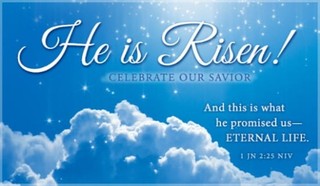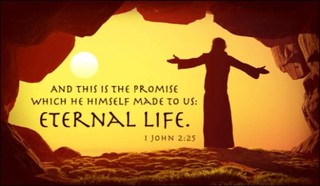
- Recent Translations
- All Translations
1 John 2:18 Meaning and Commentary
Little children, it is the last time
Or hour; not of the Jewish civil and church state, for that had been at an end for some time; this epistle was written some years after the destruction of Jerusalem; nor the last hour of the Gospel dispensation, or world to come, for this was but the first age of that; and much less the last hour of time, or of the present world itself, for that has been many hundreds of years since; but the last hour of the apostolic age. All the apostles were now dead, John was the last of them; perilous times were now coming on, impostors and heretics were rising apace, against which the apostle cautions his little children; and so still he writes to them, agreeably to their age and character, who, being such, were most likely to be imposed upon by those who lie in wait to deceive.
And as ye have heard that antichrist shall come;
or "is coming"; and begins to show himself in the false teachers and deceivers, who were his forerunners; and this they had heard and understood, either from the words of Christ in ( John 5:43 ) ; or from the account the Apostle Paul gave to the Thessalonians concerning him, ( 2 Thessalonians 2:3 2 Thessalonians 2:4 2 Thessalonians 2:7-10 ) ; or rather it may be from what, the apostle had said to the elders of the church at Ephesus, where the Apostle John now was, when he met them at Miletus, ( Acts 20:29 Acts 20:30 ) ,
even now there are many antichrists.
The Syriac and Ethiopic versions read, "false Christs"; but such are not intended here, that set up for Messiahs, whom Christ foretold should arise before the destruction of Jerusalem, ( Matthew 24:24 ) ; for that was now over, and those false Christs had arisen and were gone: if this sense could be admitted, Bar Cocab, in Adrian's time, bids fair to be the false Christ, or Messiah, in the preceding clause, as the same versions there read; but such as were adversaries of Christ, as the Arabic version renders it, are meant, who set themselves against Christ, and were opposers of his person, incarnation, and office; who either denied that he was the Christ, or that he was come in the flesh, the truth of his incarnation, or his proper deity, or real humanity, such as Ebion, Cerinthus, and others. The apostle might well say there were many, since in his time were the followers of Simon Magus, the Menandrians, Saturnilians, Basilidians, Nicolaites, Gnostics, Carpocratians, Cerinthians, Ebionites, and Nazarenes, as reckoned up by Epiphanius. And hence we learn, that antichrist is not one single individual, but many; antichrist in the former clause is explained by antichrists in this; see ( 1 John 2:22 ) ( 1 John 4:1 1 John 4:3 ) ( 2 John 7 ) ; and though the popes of Rome are, by way of eminence, the antichrist that should come, and which those deceivers were the forerunners of, and paved the way for; yet they are not the only antichrists, there were others before them, and there are many now besides them.
Whereby we know that it is the last time;
the pure apostolic age was now going off, with the doctrines, discipline, and worship of it, which was easy to be discerned by the multitude of antichrists which now appeared; and it may well be thought to be the last time, or near the end of things with us, since almost every heresy is revived among us.
1 John 2:18 In-Context
Footnotes 3
- [a] Teknia (a diminutive). It is a term of parental affection. It applies to Christians irrespective of growth. Used in vers. 12.28; chs. 3.7,18; 4.4; 5.21; John 13.33; Gal. 4.19
- [b] John uses 'hour' continually in the sense of 'time,' as John 5.35, 'a season.' It is properly a given point of time. With John it is constantly a period characterized by one thing, and hence looked at as only one time. As we say 'the hour of Napoleon's greatness.'
- [c] 'There have come' (ginomai: John 1.17) is not from the same word as 'comes' in this verse. It is what did not exist before, but begins or becomes. 'There have come' I believe nearest the sense. The perfect tense conveys the thought that they still exist.

